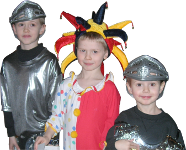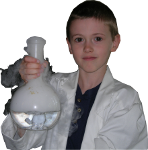Charlotte Mason – Book 2: Parents and Children
In this book Charlotte Mason explains to parents how they should teach their children. The most important aspect in the teaching of children is the formation of their character. Character can be taught through the formation of habits. To erase a bad habit, replace it with a good one. For example, if a boy is constantly playing bad tricks on people, excite him with the idea of bringing joy and good surprises to those people. Then devote yourself for a month to the child, making sure that he never falls into his old habits.
Most of what we do in life is done through habit. If we want to improve our lives, we must build good habits into it, one at a time. Then we will mindlessly do the good habit that brings joy to our lives. Well brought-up children are the ones that have been trained to have good habits.
We must also give our children living ideas every day – something that will excite them and deepen their curiosity, and therefore their knowledge of the world. This can be conveyed through nature, living books, the Bible, or an everyday object around the house. Children have a thirst for knowledge, and a day is wasted if it does not have one new idea for them to think about.
Humility is a character quality that we as a society do not understand. We think it means that we put ourselves down and say that we are not good at something. But Christ never put Himself down, and He is our example of perfect humility. To be humble means to not think of oneself at all. We should try to instill this quality in our children. (Charlotte Mason says that children are humble naturally, but I disagree.)
Truthfulness is also important. If a child is not accurate, but embellishes by making up much of the story of what happened, we are to make sure that the child understands the difference between truth and fiction. The child needs plenty of time to play in the fictitious world by reading fairy tales or playing at King Arthur, for example. But then show the difference between truth and fiction, and tell them that when addressing adults about real life, they should stick to the facts.
As far as blatant lying is concerned, we should get to the underlying issue. If they are trying to defend someone else, tell them that defending someone is good, but not at the expense of truth.
Even a baby can be trained in character. If he cries, change his thoughts to something new, like going outside or smelling a flower. Then the habit is set up to not cry for every simple bump in life. Instead he finds something else to interest him, and he takes his mind off the pain.
People sometimes misinterpret logical conclusions as what is morally right. The mind will fix upon an idea and subconsciously follow it to its logical conclusion. This is why people can rationalize sin – it seems like the right thing to do. Only if we are aware that our mind runs subconsciously along a logical course can we stop and throw out those thoughts that are wrong.
This book restates many of the same issues covered in volume one, but it comes at them from different angles, which is useful for understanding the topics that she is dealing with.

